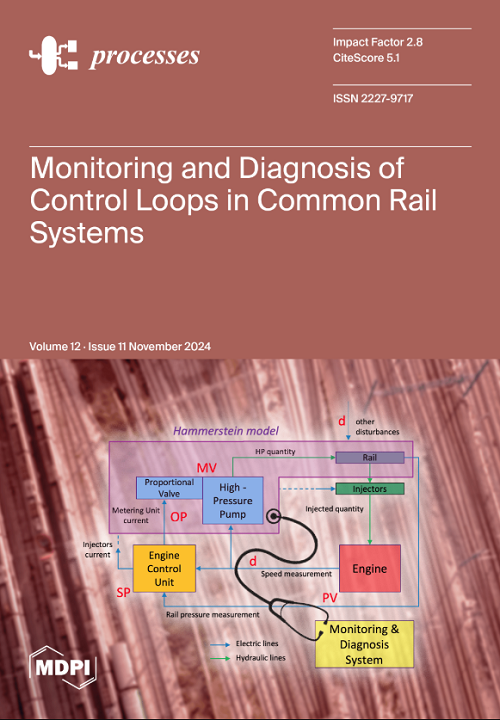Inverse Problem of Permeability Field under Multi-Well Conditions Using TgCNN-Based Surrogate Model
IF 2.8
4区 工程技术
Q2 ENGINEERING, CHEMICAL
引用次数: 0
Abstract
Under the condition of multiple wells, the inverse problem of two-phase flow typically requires hundreds of forward runs of the simulator to achieve meaningful coverage, leading to a substantial computational workload in reservoir numerical simulations. To tackle this challenge, we propose an innovative approach leveraging a surrogate model named TgCNN (Theory-guided Convolutional Neural Network). This method integrates deep learning with computational fluid dynamics simulations to predict the behavior of two-phase flow. The model is not solely data-driven but also incorporates scientific theory. It comprises a coupled permeability module, a pressure module, and a water saturation module. The accuracy of the surrogate model was comprehensively tested from multiple perspectives in this study. Subsequently, efforts were made to address the permeability-field inverse problem under multi-well conditions by combining the surrogate model with the Ensemble Random Maximum Likelihood (EnRML) algorithm. The research findings indicate that modifying the network structure allows for improved integration of the outputs, resulting in prediction accuracy and computational efficiency. The TgCNN surrogate model demonstrated outstanding predictive performance and computational efficiency in two-phase flow. By combining the surrogate model with the EnRML algorithm, the inversion results closely aligned with those from the commercial simulation software, significantly improving the computational efficiency.利用基于 TgCNN 的代理模型解决多井条件下渗透率场的逆问题
在多井条件下,两相流逆问题通常需要模拟器正向运行数百次才能实现有意义的覆盖,从而导致储层数值模拟的计算工作量巨大。为了应对这一挑战,我们提出了一种利用名为 TgCNN(理论指导卷积神经网络)的代理模型的创新方法。这种方法将深度学习与计算流体动力学模拟相结合,以预测两相流的行为。该模型并非仅由数据驱动,还融入了科学理论。它包括一个耦合渗透率模块、一个压力模块和一个水饱和度模块。本研究从多个角度全面检验了代用模型的准确性。随后,通过将代理模型与集合随机最大似然(EnRML)算法相结合,努力解决多井条件下的渗透场反演问题。研究结果表明,修改网络结构可以改进输出的整合,从而提高预测精度和计算效率。TgCNN 代理模型在两相流中表现出了出色的预测性能和计算效率。通过将代用模型与 EnRML 算法相结合,反演结果与商业模拟软件的反演结果非常接近,大大提高了计算效率。
本文章由计算机程序翻译,如有差异,请以英文原文为准。
求助全文
约1分钟内获得全文
求助全文
来源期刊

Processes
Chemical Engineering-Bioengineering
CiteScore
5.10
自引率
11.40%
发文量
2239
审稿时长
14.11 days
期刊介绍:
Processes (ISSN 2227-9717) provides an advanced forum for process related research in chemistry, biology and allied engineering fields. The journal publishes regular research papers, communications, letters, short notes and reviews. Our aim is to encourage researchers to publish their experimental, theoretical and computational results in as much detail as necessary. There is no restriction on paper length or number of figures and tables.
 求助内容:
求助内容: 应助结果提醒方式:
应助结果提醒方式:


